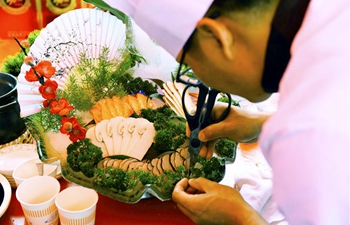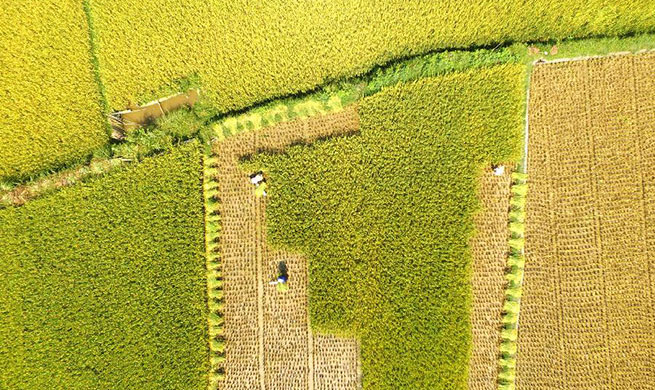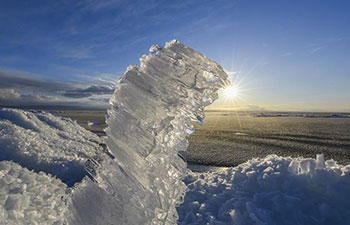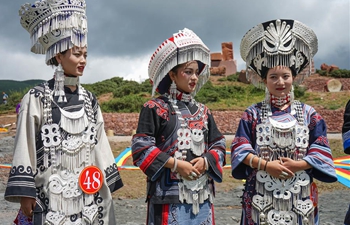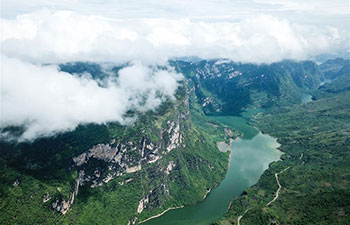PRAGUE, Aug. 9 (Xinhua) -- A team of Czech specialists have been giving the bees chlorella algae in the form of powder or sweet dough and found out that bees had become more healthy and viable.
Vaclav Kristufek, with the Ceske Budejovice Biology Center of the Academy of Sciences of the Czech Republic, has revealed the results after a research on how chlorella algae affect the lives of bees.
Beekeeping farm Koblizek, in the central Czech city of Jihlava, has become the first in the country to offer natural feed supplement for bees with this algae, which helps them during the critical periods of development of the honeybee colonies.
Based on the results of the 4-year study of the scientists, honey production has increased by 17 percent since the bees got fed with algae.
The outcome of experiment with 30 bee colonies from ten apiaries, made in 2015 and 2016, shows that the freshwater green micro alga chlorella is an attractive food for bees, which they stored in pollen cells and used mainly as a source of protein.
Scientists say that chlorella also contains substances that can act as prevention against the bee plague.
Kristufek, who himself is a beekeeper, noticed an interesting coincidence -- the bees tend to keep in clouds near the algae dryer.
"It was in the spring, when nothing was blooming and there was no pollen at all," Kristufek said. This was how the idea to use algae as a supplementary food for bees appeared, he added.
Chlorella contains 40 to 50 percent of proteins and other substances that are important for immunity. According to scientists, when a bee receives food with algae, it becomes more lively, there are more bees in the hive, the queen bee lays more eggs, more larvae appear, and bee life gets visibly longer.
Scientists then developed a new natural feed supplement for bees called apialgaprotein. It is designed to be given to bees at certain periods of time, such as in the spring at critical periods of honeybee hive development, in the summer after June 20, when the generation of long-lived bees is being developed, and in autumn.
When chlorella is offered to bees in powder, they use it as pollen. According to the research, this has enhanced the function of the pharyngeal glands of the honeybee.
In 2015, there were 54,416 beekeepers in the Czech Republic who kept 596,313 bee colonies. Annual honey production in the country is around 10,000 tons per year. In 2015, the average honey production was 15.5 kilograms per hive.





